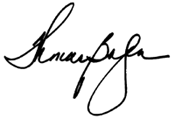2002 Distinguished Graduate Award
GEN Edward C. Meyer '51
Born in St. Mary’s, Pennsylvania, General Edward C. “Shy” Meyer graduated from the United States Military Academy in 1951. Since then, he has served the nation, the Army, and West Point with great distinction. In particular, his service as a commander and staff officer in combat, his direction of Army modernization and force development during the Cold War, his contributions to strategic studies and joint operations, and his leadership of the Association of Graduates and other organizations have made him a prominent and distinguished figure in the effort to guarantee the security of the free world.
Commissioned a lieutenant in the Infantry, General Meyer’s first assignment was to Korea in 1952. There, he commanded a rifle company in the 40th Infantry Division and later served as battalion intelligence officer, receiving awards that included the Silver Star for gallantry in action and the Bronze Star with “V” device for heroic achievement.
The next phase of Shy Meyer’s career broadened his operational experience and continued his exposure to the political-military issues that he would face in the higher-level command and staff positions to which he would later be assigned. In addition to Command and General Staff College and the Armed Forces Staff College, assignments to Headquarters, U.S. Army Europe, and the Office of the Chief of Staff, Supreme Headquarters, Allied Powers Europe, as well as the Office of the Chief of Staff of the Army expanded his base of experience and expertise. General Meyer would later attend the National War College and earn a master’s degree in International Affairs from George Washington University.
General Meyer’s military career included two tours in Vietnam. In 1965, he deployed to Vietnam, where he commanded a battalion in the 1st Air Cavalry Division (Airmobile). He would return to Vietnam from 1969 to 1970, commanding a brigade in the 1st Air Cavalry Division (Airmobile) and, subsequently, serving as the division’s chief of staff during the Cambodian Incursion in 1970. Bravery, concern for his soldiers, tactical innovation, and skillful coordination of fluid, complex operations characterized his combat leadership in Vietnam. Awards he received for service in Vietnam included a second Silver Star for gallantry in action and the Distinguished Flying Cross for heroism.
Upon his return from Vietnam, General Meyer was assigned to the Brookings Institute as its first military Federal Executive Fellow. He then was selected to serve as Assistant Division Commander of the 82nd Airborne Division, where he was especially noted for his inspiring leadership. Subsequent assignments as the Deputy Commandant of the Army War College and Deputy Chief of Staff for Operations, Headquarters, U.S. Army Europe, preceded General Meyer’s selection in 1974 to command the 3rd Infantry Division in Germany. It was during this period that he widened his focus to take in the entire Army and its preparedness to fight across the broad spectrum of wars and conflicts the nation would face in the years ahead.
General Meyer was then assigned to the Department of the Army staff. He served as the Deputy Chief of Staff for Operations and Plans, and, subsequently, the Chief of Staff of the Army, a position he held from 1979 to 1983. As Chief of Staff, his priorities included improving the equipping of the force and manning of force structure with trained soldiers and noncommissioned officers. During these years in the Pentagon, his clear institutional vision and ability to articulate the Army’s mission needs were critical in modernizing the force, increasing its operational agility, improving the integration of the reserve components into the total force, and developing organizations and readiness for joint operations. The Army that fought and won so rapidly in Desert Storm was, to a large extent, forged during the tenure of General Meyer as Chief of Staff of the Army.
Retiring from the military after thirty-six years of service, General Meyer has continued to serve the nation, the world of business, and his Alma Mater. He was a member of the President’s Strategic Defense Initiative Panel, the Defense Science Board, and other governmental advisory boards and panels. He served as President of Army Emergency Relief, and was a trustee of the George Marshall Foundation. A member of the boards of directors of FMC, ITT, GRC International, the Brown Group, ITT Financial, MITRE, the Smith Richardson Foundation, and the Scientists’ Institute for Public Information, General Meyer was also on the boards of the Hoover Institution, and Center for Strategic and International Studies. He was Chairman of the Washington Strategy Seminar. He is a recipient of honorary doctoral degrees from Boston University, Susquehanna University, and Norwich University.
General Meyer has also contributed his time and expertise to West Point and the members of the Long Gray Line, serving as a trustee at large, chairman of the first West Point Societies Committee, and, from 1993 to 1997, as the 51st Chairman of the Association of Graduates. His strategic vision largely shaped the wide array of Association class, society, and individual services existing today.
It is with great pride that the Association of Graduates presents General Edward C. Meyer, USMA Class of 1951, the Distinguished Graduate Award for 2002 for his lifetime of distinguished service to West Point, to the Army, and to the security of our nation. General Meyer has truly exemplified “Duty, Honor, Country” and burnished the image of West Point.

THOMAS B. DYER
Chairman and CEO